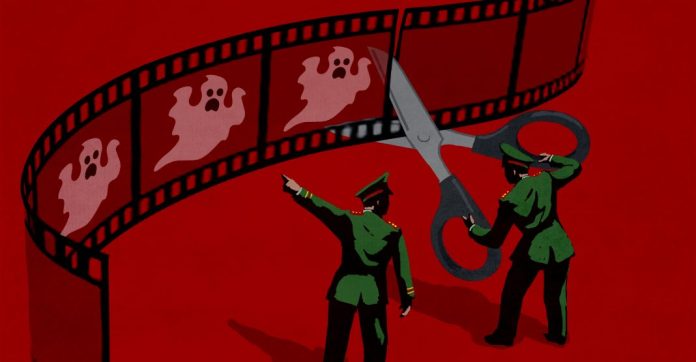China’s leading newspaper took a swipe at American “bullying” on Wednesday in a tone-setting editorial that continued to reject the United States’ framing of the relationship as rivalrous following the latest talks between presidents Xi Jinping and Joe Biden.
In the Communist Party’s flagship People’s Daily, the Chinese leadership’s pen name “Zhong Shang” said “a correct view of each other’s domestic and foreign policies and strategic intentions” was a prerequisite for properly managing bilateral relations, an urgent objective in both capitals.
“The U.S. view of China as the ‘most important strategic competitor’ and the ‘most significant geopolitical challenge’ is a misjudgement of China-U.S. relations and a misreading of China’s development,” the paper said. “It will only mislead the peoples of the two countries and the international community.”
China’s leading newspaper took a swipe at American “bullying” on Wednesday in a tone-setting editorial that continued to reject the United States’ framing of the relationship as rivalrous following the latest talks between presidents Xi Jinping and Joe Biden.
In the Communist Party’s flagship People’s Daily, the Chinese leadership’s pen name “Zhong Shang” said “a correct view of each other’s domestic and foreign policies and strategic intentions” was a prerequisite for properly managing bilateral relations, an urgent objective in both capitals.
“The U.S. view of China as the ‘most important strategic competitor’ and the ‘most significant geopolitical challenge’ is a misjudgement of China-U.S. relations and a misreading of China’s development,” the paper said. “It will only mislead the peoples of the two countries and the international community.”
The page 4 column, which otherwise closely mirrored Xi’s remarks to Biden on Monday, especially on Taiwan, took aim at U.S. efforts to selectively decouple from China economically and especially technologically, moves Washington has attributed to national security concerns.
“Engaging in trade and technology wars, building artificial ‘walls and barricades’ and pushing for ‘decoupling and severing [supply] chains’ completely violate the principles of market economy and undermine international trade rules,” it said, “which will only harm others while failing to benefit oneself.”
“China has a glorious tradition of self-improvement,” the People’s Daily op-ed said. “All suppression and containment will only inspire the will and enthusiasm of the Chinese people.”
“China has its own longstanding principles and bottom line, and legitimate interests that must be firmly safeguarded, and will not succumb to any hegemonic bullying,” the column said.
Biden went into the talks with Xi, their first time in person since Biden was elected U.S. president two years ago, wanting to establish mutual “red lines” in order to prevent competition between the two countries from getting out of hand.
China and the U.S. remain at odds over a number of issues, including Russia’s ongoing war in Ukraine. The White House tempered expectations by highlighting the fact of the meeting itself, although Biden and Xi did jointly oppose the use of nuclear weapons, a nod to the Kremlin’s saber-rattling in recent weeks.
READ ALSO: Why Poland missile strike a matter of concern that brought world leaders together
While expressly rejecting the Biden administration’s characterization of the relationship as one of strategic competition going forward, the People’s Daily editorial did appear to endorse the value of face time between the two leaders.
“The China-U.S. leaders’ meeting in Bali achieved the expected purpose of in-depth communication, clarifying intentions, drawing red lines, preventing conflict, and identifying a direction to explore cooperation,” Zhong Sheng wrote.
Diplomacy between the heads of state was the “compass” of bilateral relations, the article said. “It plays an irreplaceable strategic role in guiding the development of the relationship.”
Beijing may be loath to publicly accept Washington’s new framing, but for many, fractious ties are an established fact.
Earlier this month, Wu Zhenglong, a senior research fellow at the China Foundation for International Studies, said that the recent release of the Biden administration’s national security strategy marked the complete transformation of American policy toward China.
“The outbreak of war in Ukraine has not stopped the U.S. from shifting its strategic focus eastward,” Wu wrote in China-U.S. Focus, a website for thought pieces published by the China-United States Exchange Foundation.
“It has created a position aimed at blocking and confronting China—and maintaining U.S. hegemony—at the cost of the overall and long-term interests of the region and other countries,” he said. “Pulling allies together to besiege China is the biggest card played so far by the Biden administration in its policy toward China. It is also the area with the largest policy adjustment.”
Original Post













